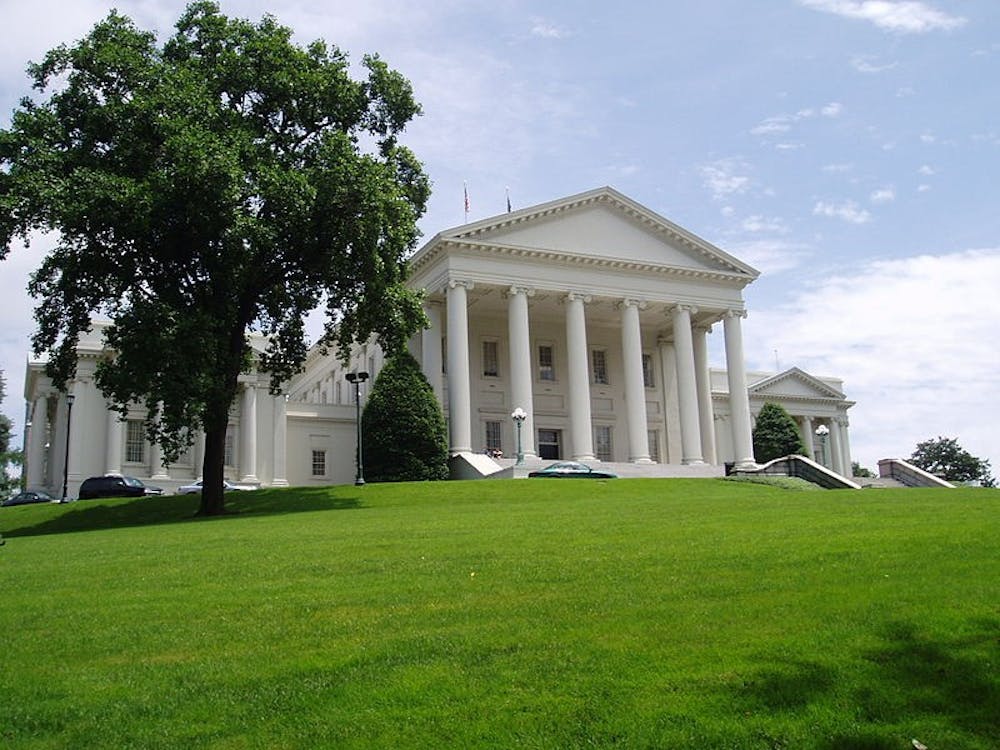Two new pieces of legislation were introduced on the floor of the Virginia Senate this week to address increasing college tuition costs. Senate bills 1405 and 1088 are sponsored by Sen. Scott Surovell (D-Mount Vernon) and Sen. Glen Sturtevant (R-Midlothian), respectively.
Under SB 1405, public colleges and universities would be required to inform students of tuition increases and accept public comments at least 30 days before putting the tuition changes into effect. Surovell’s bill was combined with SB 1376 — sponsored by Sen. J. Chapman Petersen (D-Fairfax City) — Tuesday.
The bill’s goal is to increase awareness and transparency about tuition increases. It would require colleges and universities to publish the reasons for the proposed increase on the university’s website and email a synopsis of the reasons to all students.
Public universities would also be required to publish the dates and locations of votes on tuition increases at least 30 days in advance. Public comments would be allowed at any hearing about proposed increases.
“Right now, most people just tend to find out about tuition increases by reading about them in the paper, whereas I think the students and families and others ought to know they’re coming and say something to somebody before they’re adopted,” Surovell said.
Surovell said he believes details about the University’s Strategic Investment Fund that emerged in 2016 led to increased attention on University tuition.
“A lot of legislators — and many of my constituents — were pretty upset that [U.Va. was] able to save $2.1 billion while tuition was going up,” Surovell said.
If passed by both the Senate and House of Delegates, the bill will be sent to the governor for approval. If signed into law, the bill will go into effect July 1.
SB 1088 would require public universities to disclose to incoming freshmen the maximum amount their tuition could rise over the next four years.
The bill would “require the governing boards of baccalaureate public institutions of higher education to annually establish an in-state tuition rate class cap that identifies the annual amount that the cost of in-state tuition will not exceed for each of the following four years,” according to the Virginia’s Legislative Information System.
Sturtevant did not return a request for comment on the legislation Tuesday.
The University declined to comment on the pending legislation.
Robert M. O’Neil, University President from 1985-90, said rising tuition costs have become a more serious problem since his time at the University.
“The cost of higher education everywhere except in community colleges has increased much more rapidly than general cost of living,” O’Neil said. “When that happens it certainly creates alarm and a lot of frustration, a sense of detachment. Parents and families really have to scrounge for tuition money.”
O’Neil said he believes some of the proposed bills may be ratified. Many of the bills have bipartisan support.
A group of bipartisan legislators from the Hampton Roads area held a news conference Jan. 17 declaring their intention to make higher education more affordable.
“It’s why you hear people — this bipartisan group of Hamptons Roads legislators — making the kind of statement that they did a few days ago,” O’Neil said. “That definitely gets your attention. I would rank it as more serious a prospect than I think a lot of others would give it.”
Drawing from his own experience interacting with the legislature when he was University president, O’Neil is confident these bills — if passed — would have a strong impact on colleges and universities.
“Virginia is a very strong legislatively-driven state,” O’Neil said. “So that’s another reason why — back when I was there — we tended to be particularly sensitive to sort-of rumblings from the senior Finance Committee legislators.”







